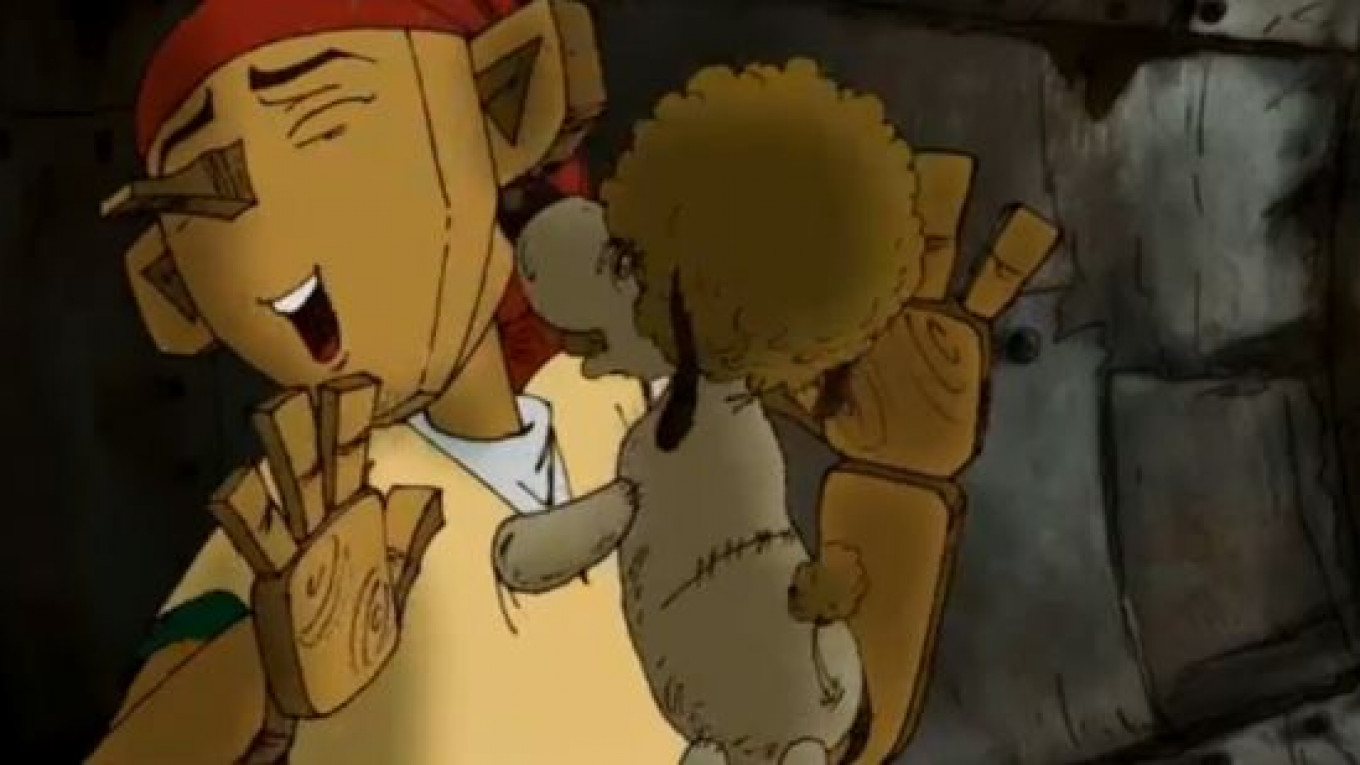When political protests and calls for changes become a trend in a country, even a cartoon starts to critique social injustice.
"The Return of Buratino" is one such animation, telling a story of the adventures and struggles of a boy carved from a log.
The film was released at the end of April and is based on a Russian version of Carlo Collodi's famous fairy tale: Pinocchio.
While Buratino has survived many screen adaptations since his conception in the 1930s by Alexei Tolstoy, a descendent of Leo Tolstoy, "The Return of Buratino" portrays the main character as rebelling against an oligarchy dictatorship.
One of the original text's phrases, "the patient is more dead then alive," is often still used to describe the current political situation.
In the new cartoon, Buratino, the wooden boy, helps his fellow old-fashioned toys in their fight against Mr. Baskara, a rich capitalist who turns them into plastic mass-produced dolls.
The factory, owned by Baskara, produces only two types of toys: the "Glamoushka" doll for girls (Glamorous) and the "Zubastik" (The Nibbler) robot.
While showing Buratino and his friends living in poverty, the cartoon simultaneously portrays a wealthy and vibrant city which they are not part of: a reference to Moscow.
"Yes, the rich man becomes a bad man again," the scriptwriter of the new cartoon, Vadim Zhuk, told Ogonyok magazine last week.
"I don't know how such an amount of wealth is even created. But this is not the only important thing. There is also the fact that those people are becoming respected individuals," he said.
It is not the first time that Zhuk is playing with social and political satire. In the mid 1990s he wrote sketches for the famous 'Kukli' (Puppets) show on NTV television, in which puppet characters depicted both ruling officials, among them President Putin, and their opponents.
The show was written by prominent satirist Viktor Shenderovich, who later became one of the staunchest opponents of the Kremlin. It was taken off air in 2002 after a government crackdown on the NTV television station, using the channel's debts to its lender Gazprom as a pretext.
While the cartoon avoids direct attacks against the establishment, since it is aimed at children who easily recognize the popular fairy-tale characters, some of its satire can be read between the lines: "Nano? Who needs this nano?" Buratino said, when asked about nano technology.
The phrase, which played on the similarity of two Russian words "nano" and "nado" (need it) seemed to be a clear reference to the nano technology corporation headed by Anatoly Chubais, a key player in the early 1990s privatization drive, making him a very unpopular figure.
Unlike the majority of Russian cartoons that try to mimic Hollywood production, Buratino's director is well known for her art-house animation. Yekaterina Mikhailova created the film in a style similar to that of French and European animation.
However, the cartoon technique received complaints from one disgruntled viewer who said the movie was not "watchable" in 3-D.
Other viewers who discussed the cartoon following its screening at the popular Kinopoisk site were not satisfied with the new version of an old Buratino tale.
Alexei Tolstoy's "The golden Key of the Buratino Adventures" was the product of his attempts to translate the Collodi tale into Russian. However, he said he found the original "boring" and as a result, decided to write his own, while still using the same central character.
The fact that this new production retains old features such as the traditional fight between Buratino and the villainous rich puppet theater owner Karabas-Barabas, albeit in a different guise, has not assuaged the irritation of some critics.
"It is a clear exploitation of old images brought into the modern times," one of them writing under the nickname Leks Karter wrote.
Contact the author at [email protected]
Related articles:
A Message from The Moscow Times:
Dear readers,
We are facing unprecedented challenges. Russia's Prosecutor General's Office has designated The Moscow Times as an "undesirable" organization, criminalizing our work and putting our staff at risk of prosecution. This follows our earlier unjust labeling as a "foreign agent."
These actions are direct attempts to silence independent journalism in Russia. The authorities claim our work "discredits the decisions of the Russian leadership." We see things differently: we strive to provide accurate, unbiased reporting on Russia.
We, the journalists of The Moscow Times, refuse to be silenced. But to continue our work, we need your help.
Your support, no matter how small, makes a world of difference. If you can, please support us monthly starting from just $2. It's quick to set up, and every contribution makes a significant impact.
By supporting The Moscow Times, you're defending open, independent journalism in the face of repression. Thank you for standing with us.
Remind me later.






